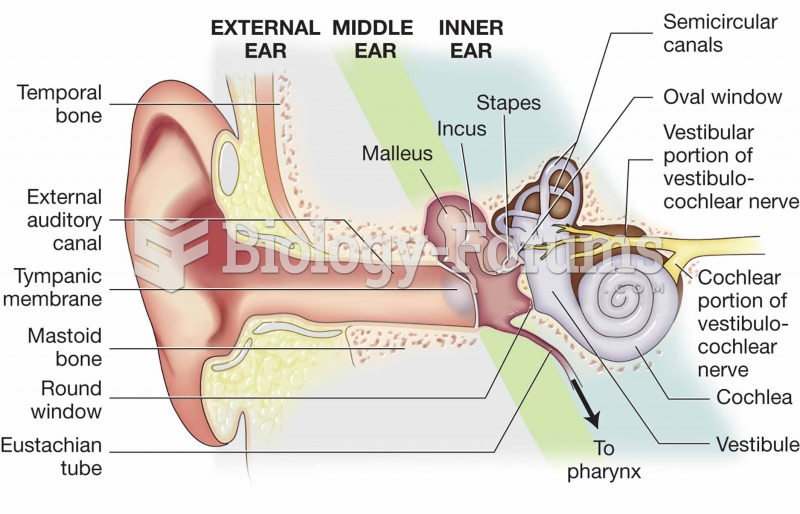|
|
|
Coca-Cola originally used coca leaves and caffeine from the African kola nut. It was advertised as a therapeutic agent and "pickerupper." Eventually, its formulation was changed, and the coca leaves were removed because of the effects of regulation on cocaine-related products.
The U.S. Preventive Services Task Force recommends that all women age 65 years of age or older should be screened with bone densitometry.
As the western states of America were settled, pioneers often had to drink rancid water from ponds and other sources. This often resulted in chronic diarrhea, causing many cases of dehydration and death that could have been avoided if clean water had been available.
Addicts to opiates often avoid treatment because they are afraid of withdrawal. Though unpleasant, with proper management, withdrawal is rarely fatal and passes relatively quickly.
The term pharmacology is derived from the Greek words pharmakon("claim, medicine, poison, or remedy") and logos ("study").
 At breakfast, a middle-class husband sits absorbed in the newspaper and the public affairs of the da
At breakfast, a middle-class husband sits absorbed in the newspaper and the public affairs of the da
 Grace Service, a YMCA missionary, explained that these porters worked at the base of Mount Omei in S
Grace Service, a YMCA missionary, explained that these porters worked at the base of Mount Omei in S





